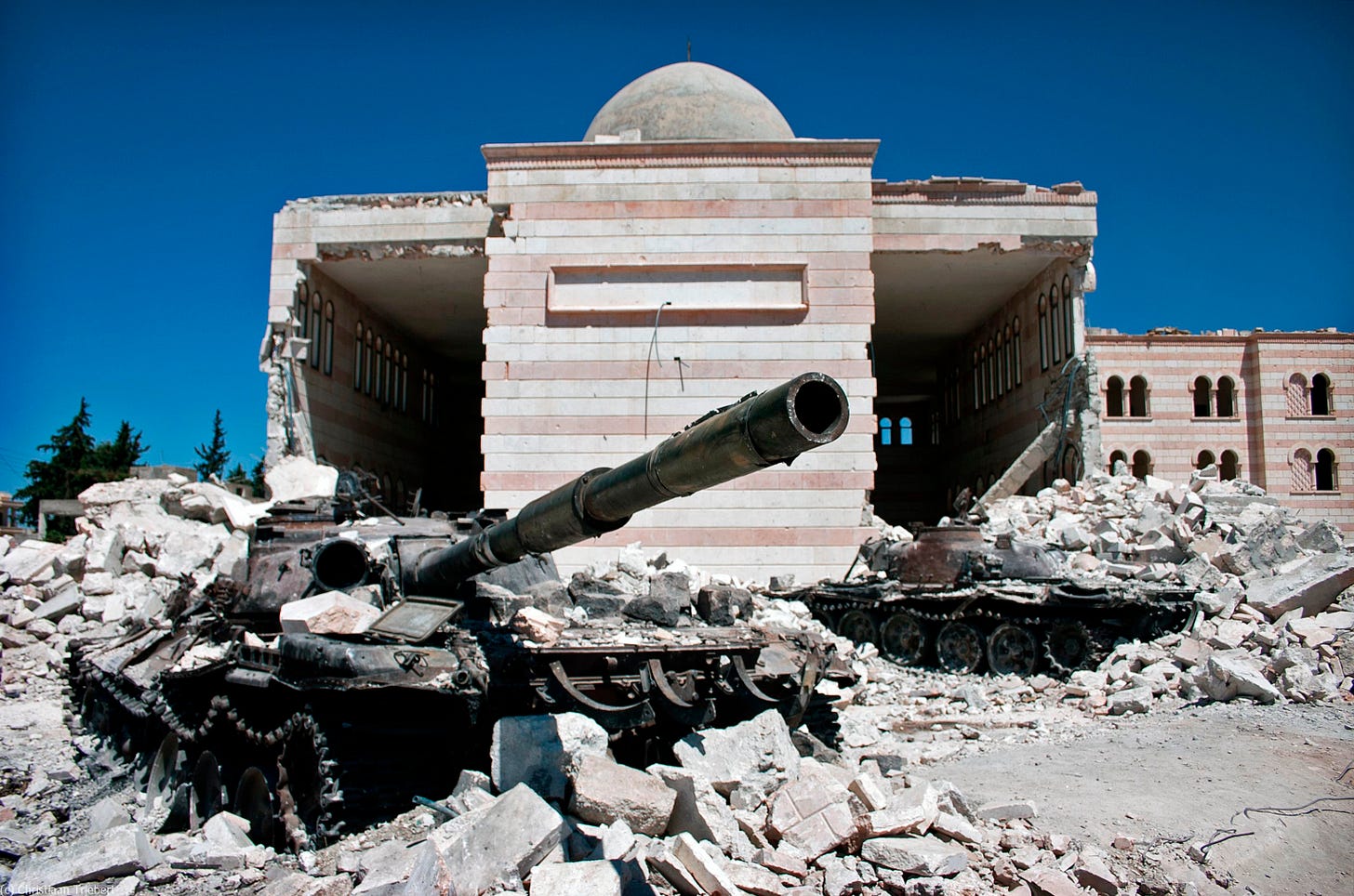The Butchery of the Druze and the West’s Cowardly Silence
When outrage depends on who the victims are, human rights lose all meaning.

In recent days, disturbing reports have emerged from southern Syria documenting the massacre of Druze civilians by armed Islamist groups. Eyewitness accounts and verified video evidence circulated on platforms such as Telegram and X reveal that victims were subjected to extreme violence—beheadings, mutilations, immolation, and the abduction of women and children. These acts were not carried out in secrecy. On the contrary, the perpetrators filmed themselves in the act, often smiling or invoking religious language, and distributed the footage as a form of ideological propaganda.
This pattern of personalized, ideologically charged violence is tragically familiar. It mirrors the atrocities committed by ISIS against Yazidis and Christians in Iraq and Syria from 2014 onward. It is consistent with the tactics employed by Boko Haram and Al-Shabab in Nigeria and the Horn of Africa. Most recently, it closely resembles the attacks carried out by Hamas on October 7, 2023, when over 1,200 Israeli civilians were massacred in a single day.
The October 7th attacks stand as the most lethal assault on Jews since the Holocaust. Civilians were executed in their homes, entire families were burned alive, women were raped—sometimes with the assaults filmed and shared in real-time—and over 250 people, including children, babies, and the elderly, were abducted and taken into Gaza. Many of the victims were targeted in kibbutzim and at the Supernova music festival near Re'im, where concertgoers were hunted, executed, and in some cases, beheaded. In several instances, Hamas operatives used the victims’ phones or social media accounts to upload footage of their deaths, ensuring that families received the news not through officials, but through livestreamed horror.
These events were not spontaneous. They were carefully planned, filmed, and justified in religious and ideological terms. And in all of these cases—from Syria to Israel, from Nigeria to Iraq—the underlying patterns are consistent: extreme, ritualized violence; explicit religious justification; public dissemination of the atrocities; and a disturbing sense of pride by the perpetrators.
Yet despite this consistency, the response from much of the international community—and in particular from Western academic and activist spaces—has been highly selective. While the October 7th massacre elicited an initial wave of condemnation, that condemnation was quickly replaced in many Western institutions by protests, encampments, and campaigns not against Hamas, but against Israel. On numerous university campuses, the massacre was justified or downplayed as part of a broader anti-colonial struggle. In some cases, it was openly celebrated.
Now, just months later, when Islamist groups carry out near-identical atrocities against Druze civilians in Syria—complete with the same methods, same theological language, and same ritualized cruelty—the response has been near silence. No global demonstrations. No media saturation. No student-led solidarity movements. No UN emergency sessions.
The disparity is stark. When Israel responds militarily to an attack like October 7th—an attack whose scale, brutality, and documentation left little room for ambiguity—it is immediately accused of war crimes, apartheid, or even genocide. But when groups like Hamas, ISIS, or the various Islamist militias operating in Syria commit atrocities, the world often hesitates to react. This is especially true when the victims are minorities: Yazidis, Christians, Druze, or even Arab Muslims who do not conform to the ideological orthodoxy of the aggressors.
This pattern of selective outrage undermines the universality of human rights discourse. It raises troubling questions about the ideological filters through which suffering is assessed and responded to in public discourse. When moral outrage is dictated not by the severity of the atrocity but by the identity of the perpetrator or the political usefulness of the victim, the credibility of the human rights community suffers greatly.
Furthermore, this inconsistency obscures the central challenge posed by transnational jihadist violence. The ideologies that animate these atrocities—whether in Israel, Syria, Nigeria, or elsewhere—are interconnected. They are part of a global ecosystem of Islamist extremism that thrives on dehumanization, public spectacle, and theological justification. They are not isolated or confined by national borders, and they rarely operate with regard for conventional rules of war or civilian immunity.
It is important to recognize that these atrocities are not committed in the fog of war. They are purposeful. They are tactical. They are ideological. And they are meant to send a message—not only to their immediate victims, but to the world.
When the global response is selective, muted, or politicized, it not only betrays the victims of such violence, it also emboldens the perpetrators. It signals that some atrocities will be condemned loudly, while others will be quietly forgotten, depending on the political narrative they serve. This creates a perverse incentive structure in international advocacy, one that prioritizes ideology over justice.
To confront this, institutions—academic, political, and media alike—must commit to moral consistency. The atrocities committed on October 7th and the massacres now taking place in Syria are not merely parallel; they are manifestations of the same phenomenon. They require the same moral clarity, the same political will, and the same urgent response.
If the defense of human rights is to retain its meaning, it must be grounded in principles that apply regardless of who the victims are or who the perpetrators happen to be.
The silence surrounding the Druze today echoes the initial indifference shown to Yazidis in 2014 and the willful blindness displayed by many in the face of October 7th. It is not merely a failure of compassion. It is a failure of principle. One that we cannot afford to repeat.
Joshua Schewitz is a researcher and analyst specializing in Africa and the Middle East, with a focus on security related-topics in addition to blockchain technology.



